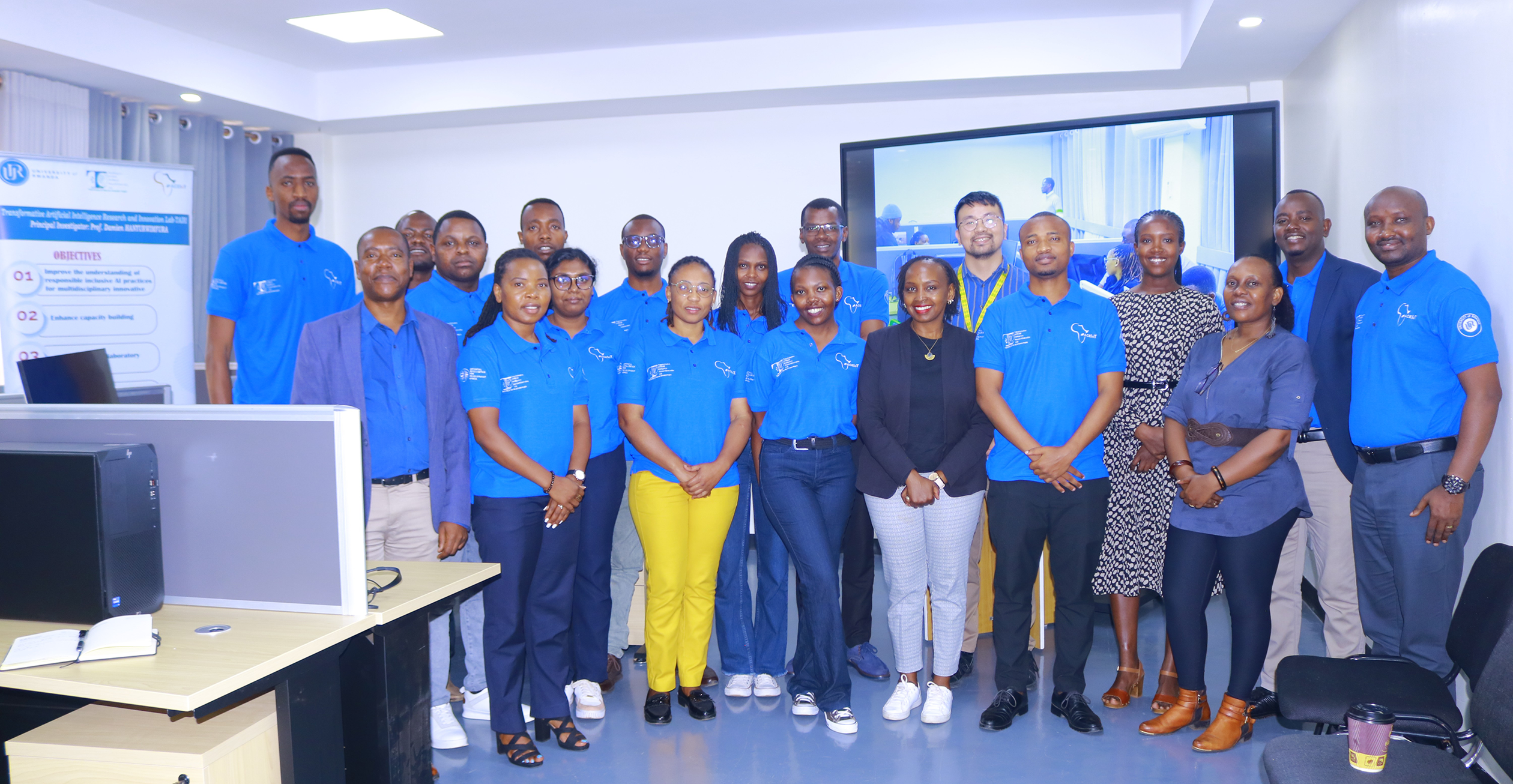On 19th August 2025, the Transformative Artificial Intelligence Research and Innovation (TAIRI) Lab, housed at the African Centre of Excellence in Internet of Things (ACEIoT), University of Rwanda, welcomed a distinguished delegation from the International Development Research Centre (IDRC). The delegation included Dr. Emmy Chirchir and Mr. Kai-Hsin Hung, who visited the newly established lab to engage with scholars driving cutting-edge research in artificial intelligence.
The TAIRI Lab is a dynamic hub bringing together 10 postgraduate researchers, comprising five PhD scholars and five Master’s scholars. These scholars are paired to collaborate on five innovative projects grouped within three critical clusters: health, agriculture, and environment. With a mission to generate AI-powered solutions tailored to societal challenges, the lab provides a vibrant ecosystem for interdisciplinary collaboration and knowledge creation.
Equipped with state-of-the-art HP workstations and a large collaborative screen, the TAIRI Lab offers the computational capacity to train sophisticated AI models. These facilities are instrumental in enabling scholars to explore transformative applications of AI that have real-world impact across Rwanda and beyond.
During the visit, scholars presented their ongoing projects and engaged in an interactive session with the IDRC delegation. Dr. Chirchir and Mr. Hung actively listened to the presentations, posed thought-provoking questions, and shared valuable advice on enhancing the societal relevance of the research.
Cecile is developing an AI-powered traffic management system for Kigali that uses Graph Neural Networks and real-time GPS data to predict traffic patterns, optimize routing for moto-taxis and other vehicles, and provide decision support for reducing congestion while improving air quality and climate resilience in Rwanda's capital city.
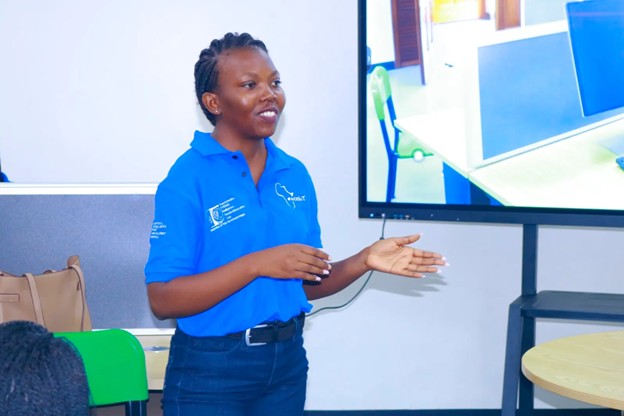
Umutoni Ritha shared with the IDRC delegation that her PhD research is on developing an AI-based World Model for Hormonal and Reproductive Health Disorders Detection and Predictions. She explained that conditions like infertility, PCOS, endometriosis, and fibroids are highly prevalent but often diagnosed late, especially in underserved communities. Her work focuses on using machine learning, generative AI, and reinforcement learning to build a comprehensive system that integrates clinical, lifestyle, genetic, and environmental data. The system will not only predict risks and detect anomalies early but also provide personalized treatment options, dietary guidance, and proactive fertility management. As she put it, the goal is to move from fragmented, delayed care to a proactive, data-driven, and individualized approach to women’s reproductive health.
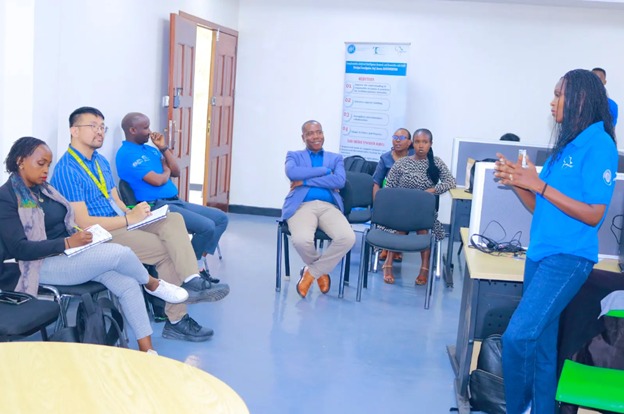
This AI-driven clinical decision support system project, developed by PhD student Enatha and Masters student Violet, tackles Rwanda's critical antimicrobial resistance (AMR) crisis where 98% of antibiotic treatments are prescribed empirically without diagnostic confirmation, leading to 7,500 annual deaths and a 73% resistance rate to ceftriaxone—nearly double the global average. Their solution creates an intelligent "navigation app" for healthcare workers that integrates real-time data, local resistance patterns, patient history, and WHO guidelines to provide personalized antibiotic recommendations, early warning systems for high-risk patients, and immediate referral triggers for lab testing. The expected transformative impact includes reduced mortality from inappropriate antibiotic therapy, preserved antibiotic efficacy through more targeted prescribing, enhanced real-time AMR surveillance for national policy planning, and positioning Rwanda as a regional leader in using AI to combat this global health challenge that threatens the foundation of modern medicine.
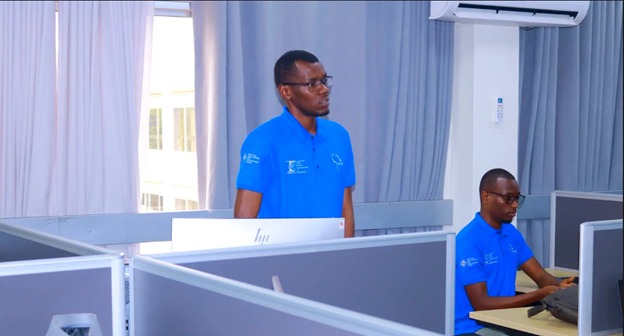
Jean Louis, in collaboration with Masters student Thierry, is developing AI-powered tools to monitor and forecast air quality in Kigali with support from IDRC Canada. The project addresses Rwanda’s critically high PM2.5 pollution levels (34.9 µg/m³, seven times above WHO guidelines), which cause severe health risks, particularly for young children and people with chronic illnesses.
Their research involves building a multimodal deep learning model that integrates data from Meteo Rwanda (meteorological data), Rwanda Space Agency (satellite data), REMA (air quality stations), and Rwanda National Police (traffic data). Since no single dataset is sufficient, this integration aims to produce more accurate air quality forecasts to support evidence-based policymaking.
Additionally, they are investigating how Kigali’s landscape and environment naturally mitigate pollution, offering insights for sustainable urban planning. To ensure accessibility, the project will deliver both a mobile app for the public and a web dashboard for institutional use
The visitors encouraged the scholars to ensure that their research outcomes are effectively disseminated to end users, emphasizing that impactful scholarship must translate into tangible benefits for communities.
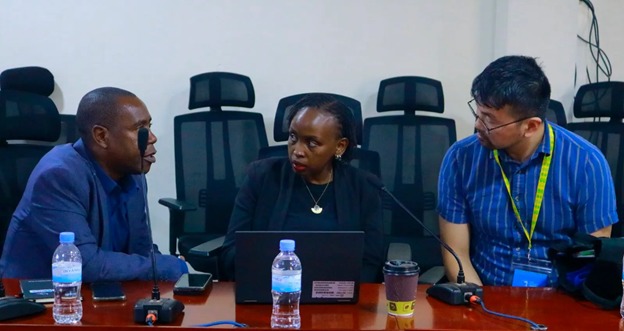
Speaking on the significance of the visit, faculty members highlighted the importance of such international engagements in nurturing a research culture rooted in impact, inclusivity, and innovation. The presence of IDRC representatives at the TAIRI Lab reaffirmed the University of Rwanda’s commitment to positioning itself as a leader in applied artificial intelligence research for sustainable development.
The visit concluded with a renewed sense of purpose among the scholars, inspired by the guidance received and motivated to strengthen their contributions to addressing pressing societal challenges through responsible and transformative AI solutions
